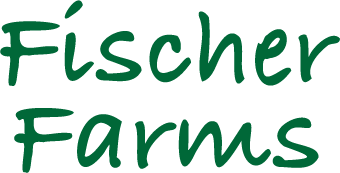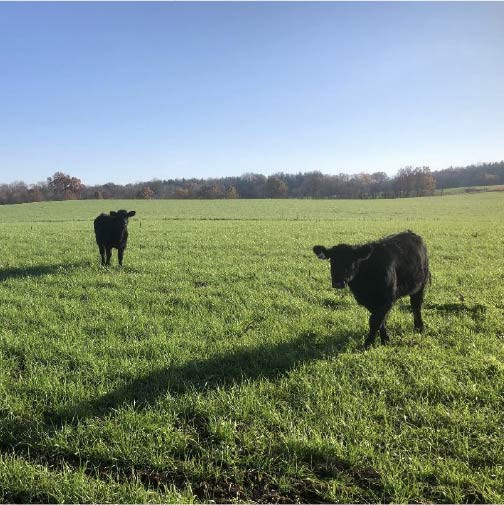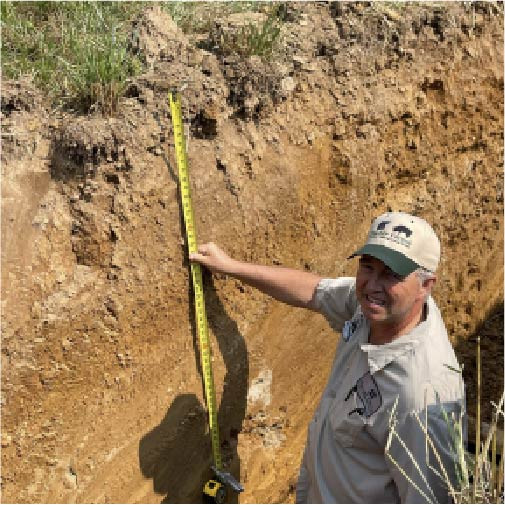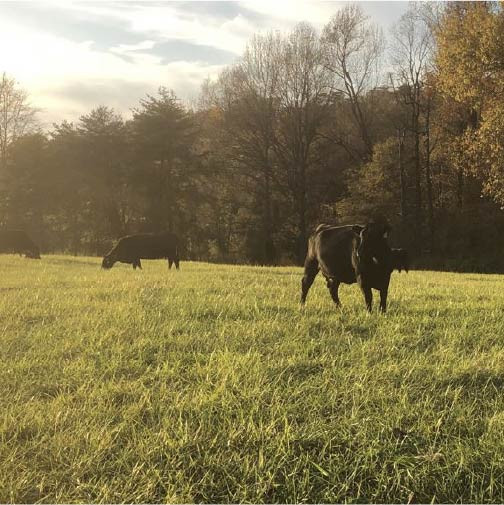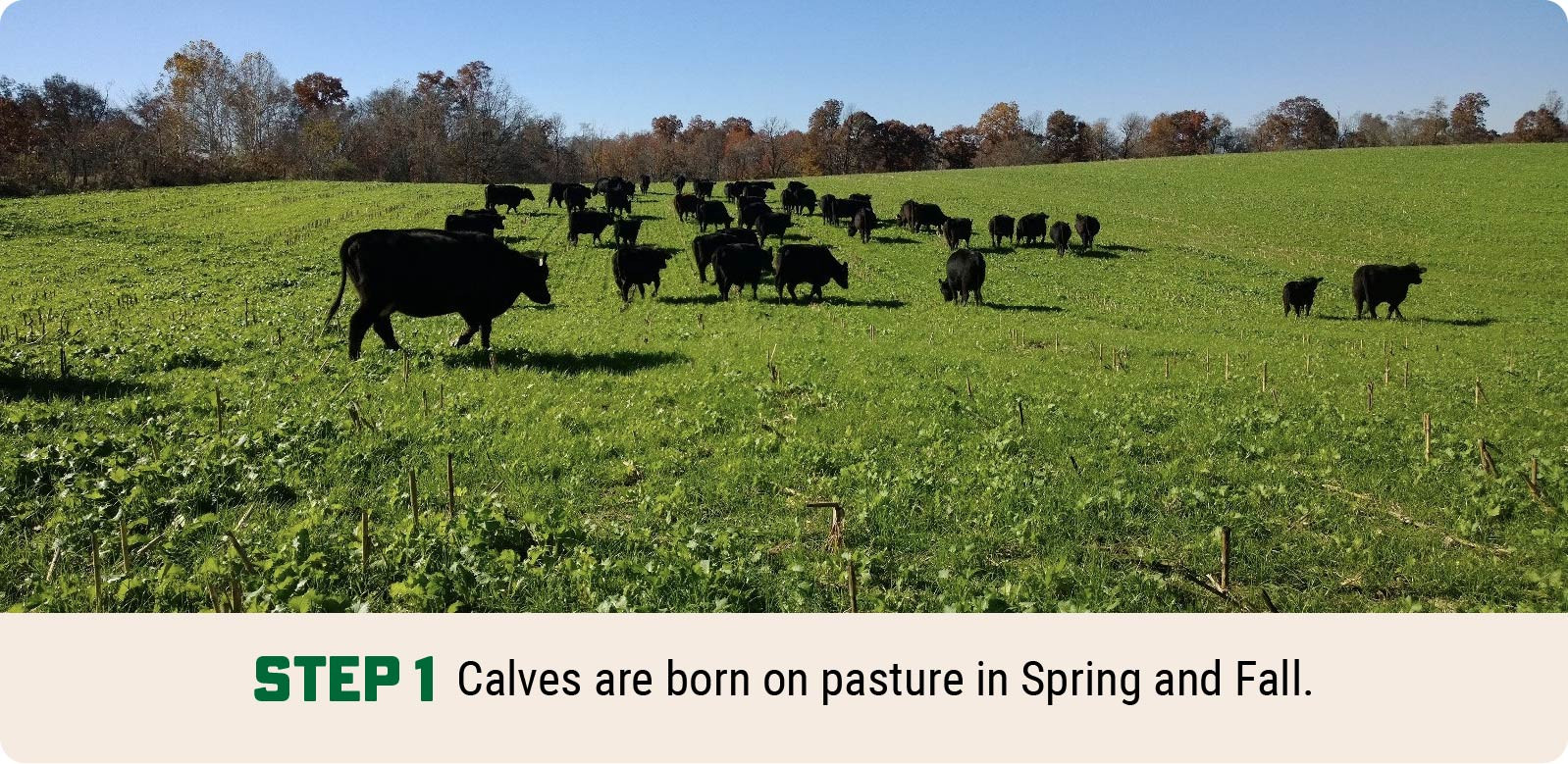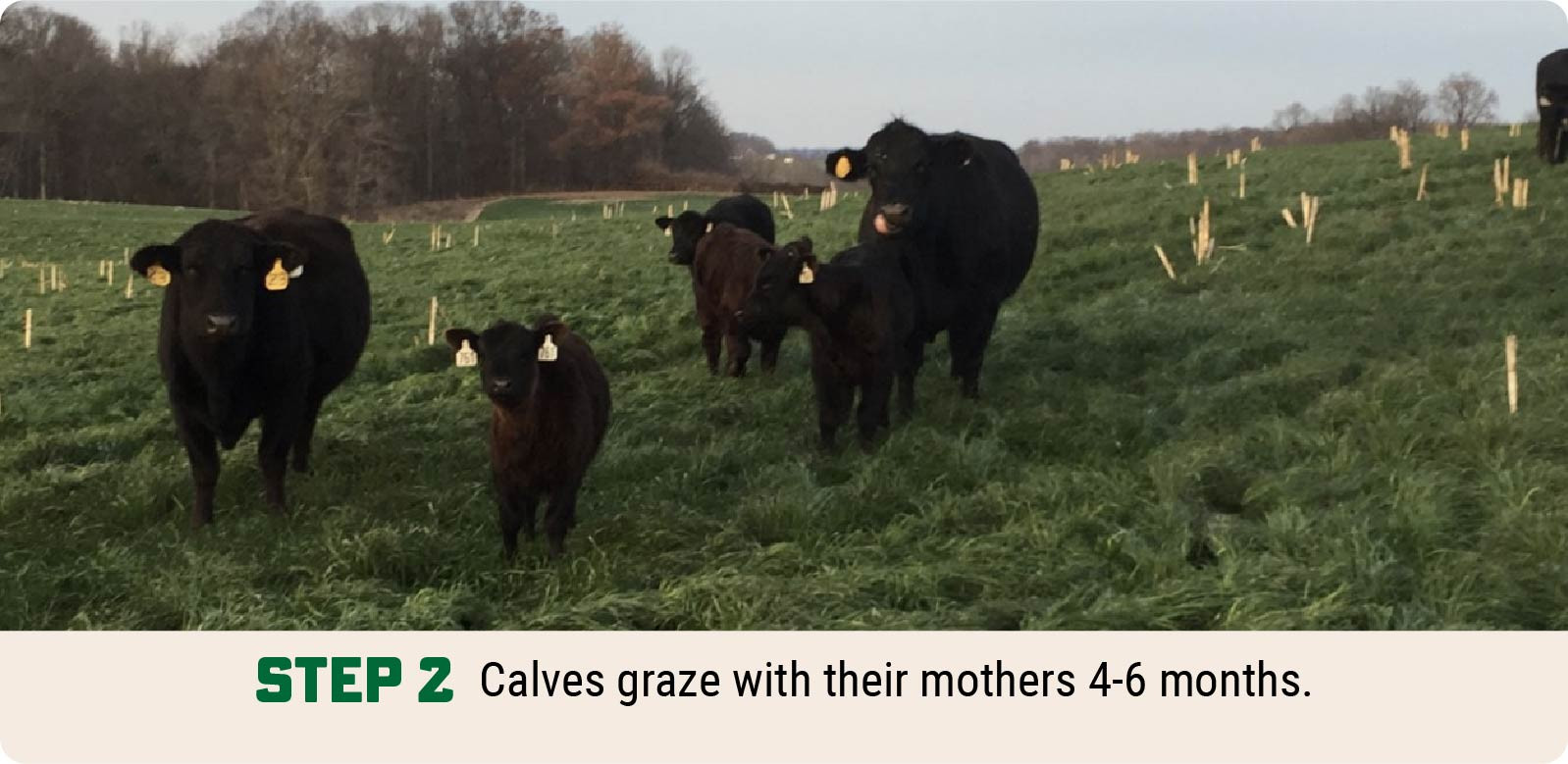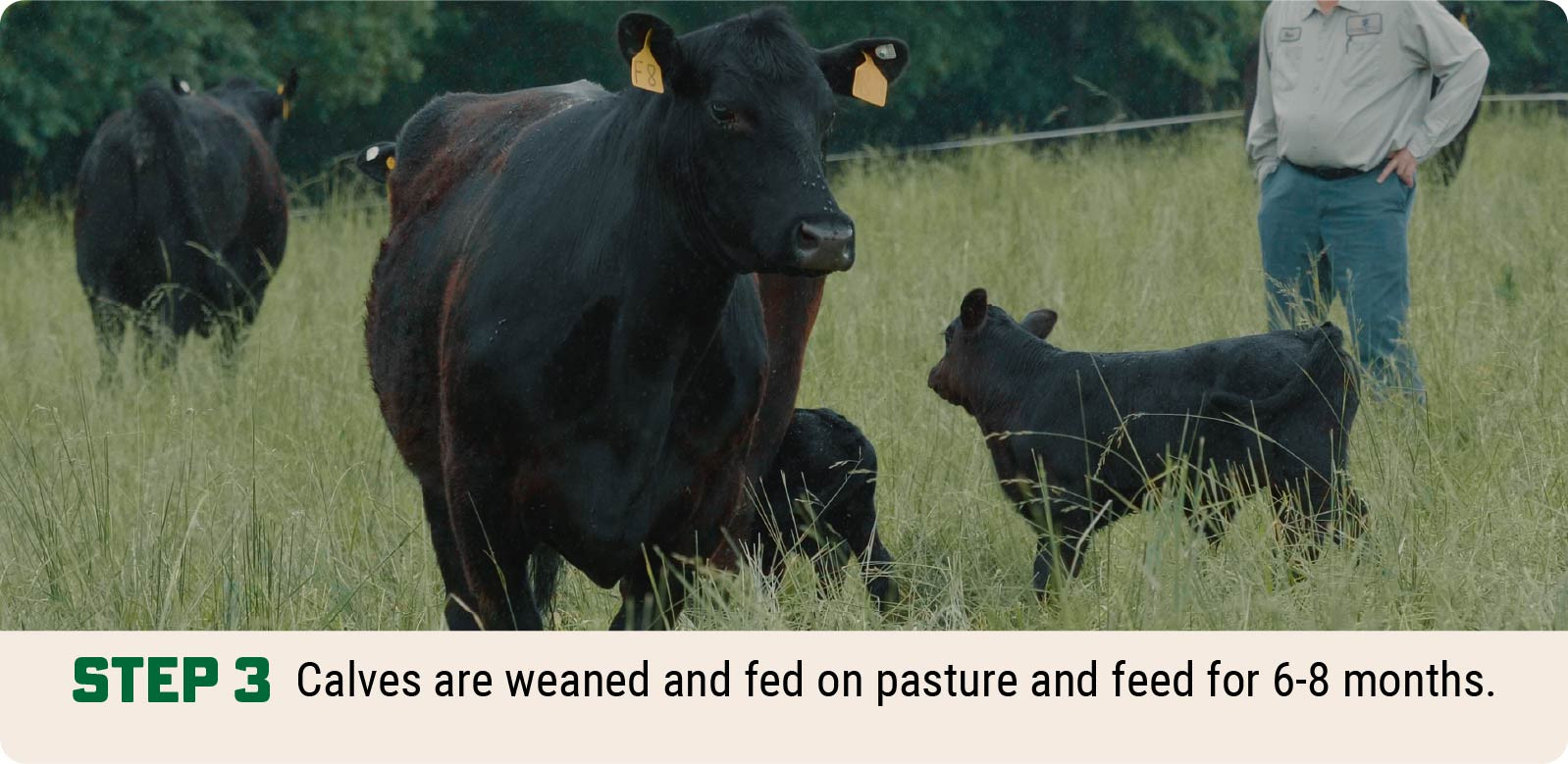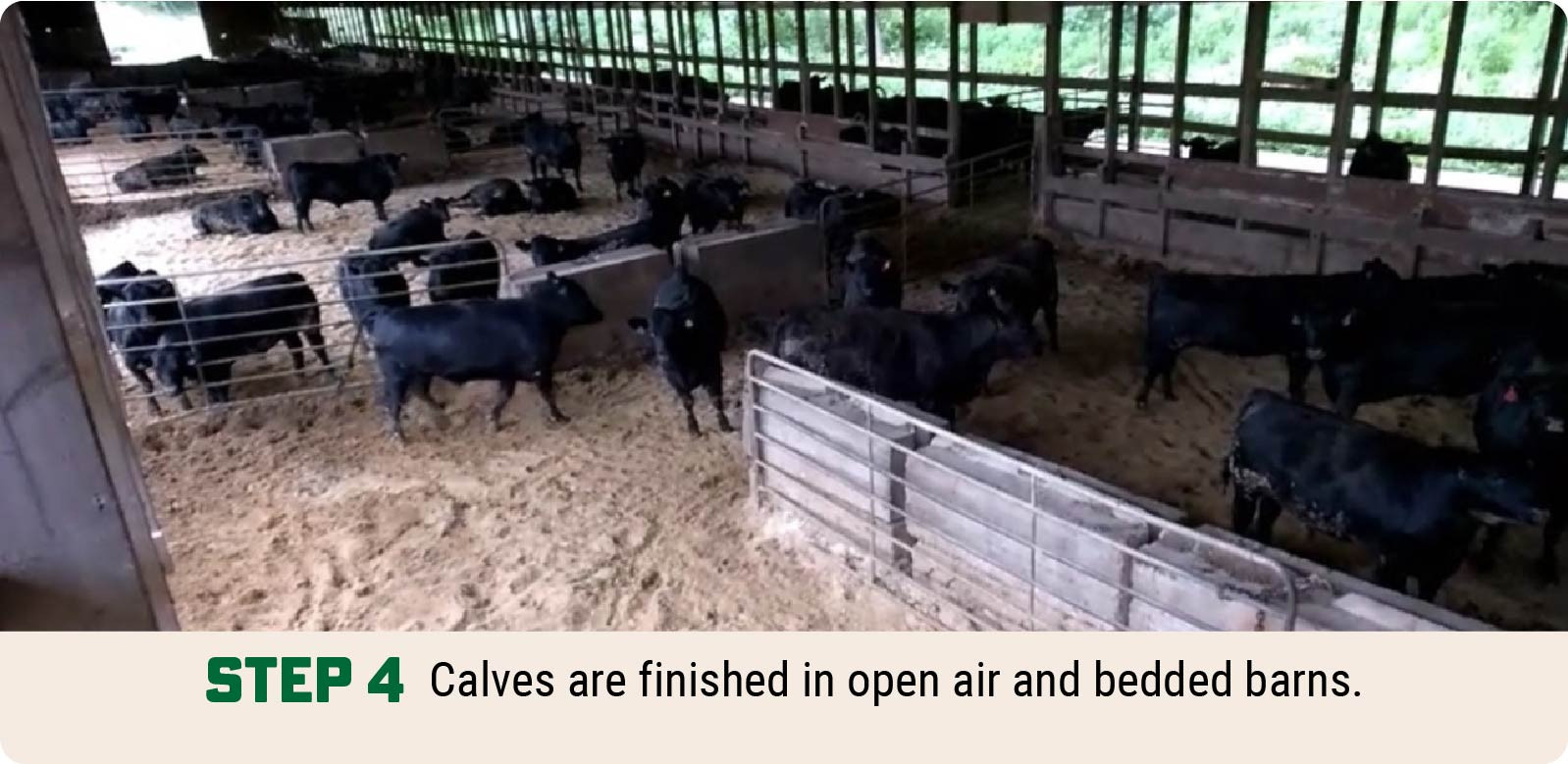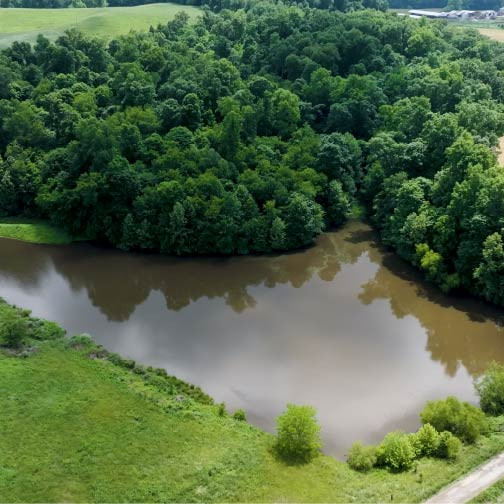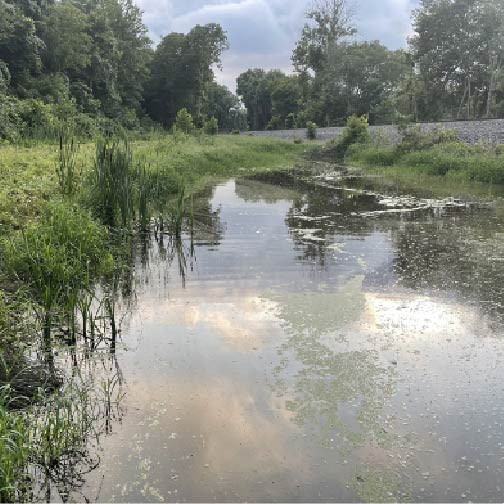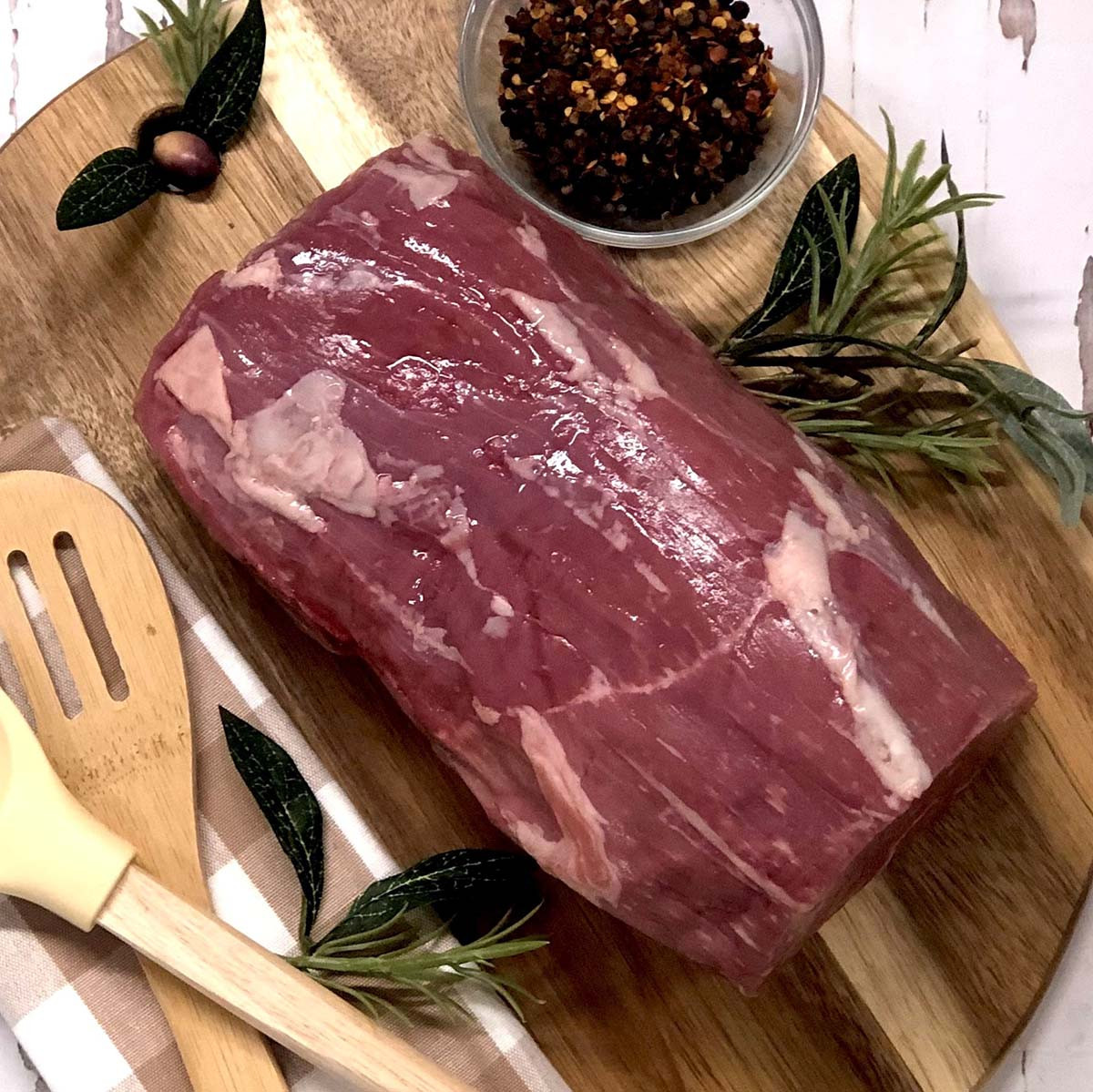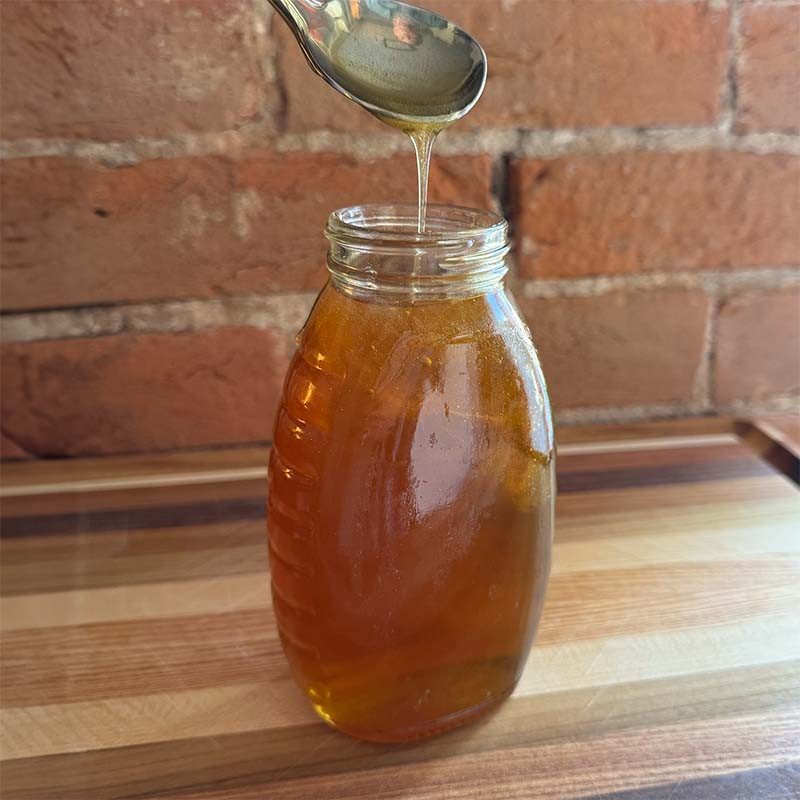Our Sustainable Farming Practices
Cows are good for the environment! Did you know responsible beef production has the potential to be carbon negative? Our Indiana farm uses regenerative agriculture for the betterment of our farmland, animals, and environment.
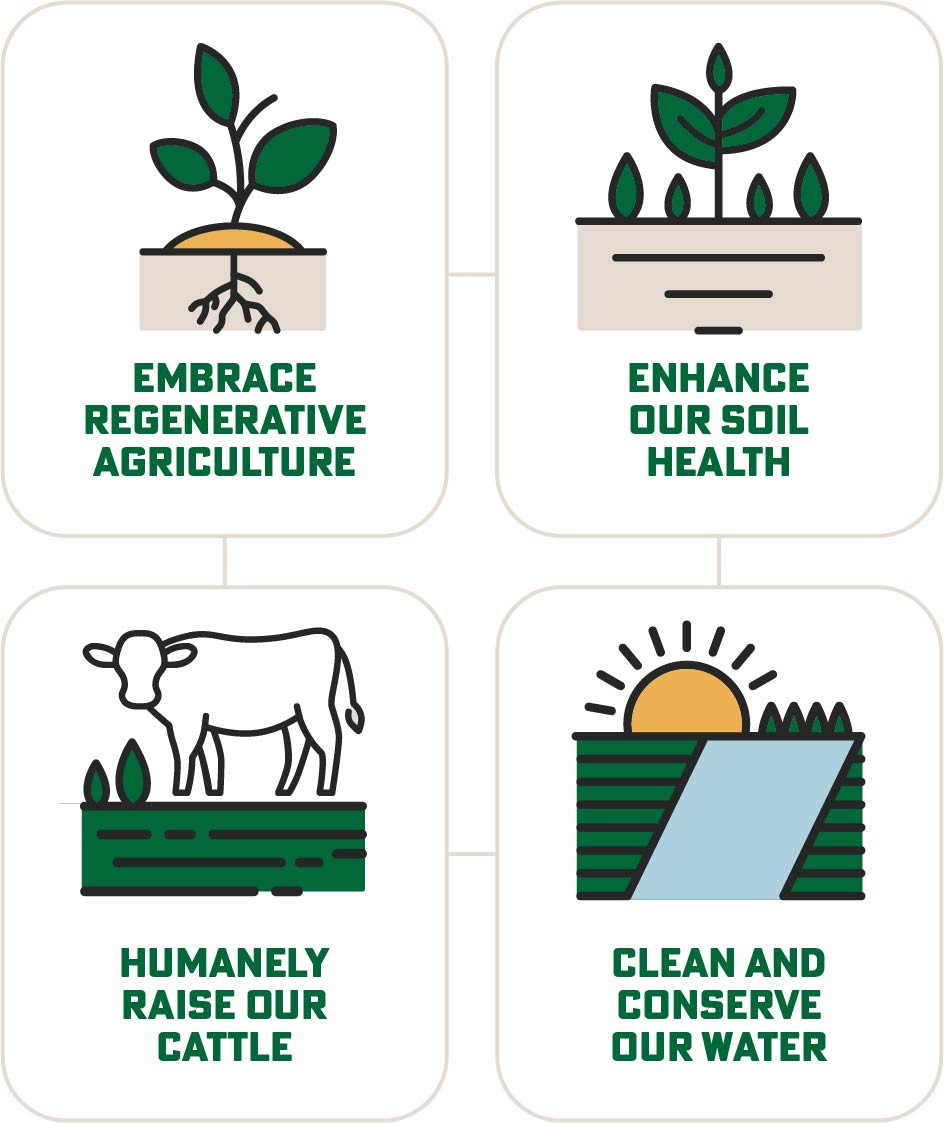
Regenerative Agriculture
We embrace holistic land management practices that reverse climate change, rebuild soil health, and restore biodiversity. Through regenerative farming and grazing practices…
- We mitigate climate change by minimizing our carbon footprint across the entire carbon lifecycle.
- We store more carbon in the soil than old-growth forests via carbon sequestration through our crop rotation of corn and rye grass.
- We reduce methane emissions by feeding our cattle kelp (shown in a UC Davis study to reduce greenhouse gas emissions by up to 82%) and using soy biodiesel to fuel our equipment.
- We embrace rotational grazing to enhance soil fertility, increase carbon sequestration, and promote a sustainable water cycle.
- We shorten the distance that our food travels to reach customers by offering local pickup, and using established foodservice distributor logistics networks and backhauls to minimize trucks on the road. (Did you know that fresh food typically travels an estimated 1,500 miles to reach customers in conventional grocery systems?)
Healthy Soil
We began the journey to enhance our soil's health in 2004, and have continued to learn and improve our methods over the years. Through purposeful field management practices, including employing continuous root growth and year-round ground coverage, we’ve…
- Increased crop yields
- Prevented soil erosion
- Nearly tripled the depth of our topsoil
- Increased our subsoil from 15 inches to a thriving 22 inches — which was previously thought to be incredibly difficult to achieve
- Increased carbon sequestration by having active root growth and ground cover at all times
- Provided a thriving ecosystem for insects and other beneficial organisms by minimizing our use of fungicides, herbicides, and fertilizers
Humane Treatment
Happy cows are healthy cows. Here’s how we embrace humane farming…
- We reduce stress by keeping calves with mothers till 6-8 months of age when they are mature enough for weaning
- We allow calves to be born, weaned, and fed on pasture
- We utilize dry, open-air barns for shelter
- We prioritize health and disease prevention
- We provide clean water for our animals
In fact, we’re setting the standard for responsible antibiotic use in cattle farming. We’ve partnered with the Antibiotic Resistance Action Center to develop the first-ever manual for responsible antibiotic use in cattle, based on many of our farm’s practices.
Water Cleaning & Conservation
We work with environmental agencies and water conservation groups to create a sustainable system to preserve our most precious resource. We…
- Supply fresh drinking water from rain water rather than treated “city water”
- Created a runoff capture system that collects runoff from our farm and neighboring farms and purifies it using our man-made wetland
- Improve drought tolerance, flood resistance, and erosion protection by deepening our soil’s water holding capacity. Our soil is effectively a super-absorbent sponge that absorbs rain during heavy rainfalls and stores it until the plant needs it.
Sustainability isn’t just a buzzword at Fischer Farms, it’s our way of life. When you buy our natural Indiana beef, you can rest assured you’re making a choice that isn’t only good for your family, but good for the world, too.
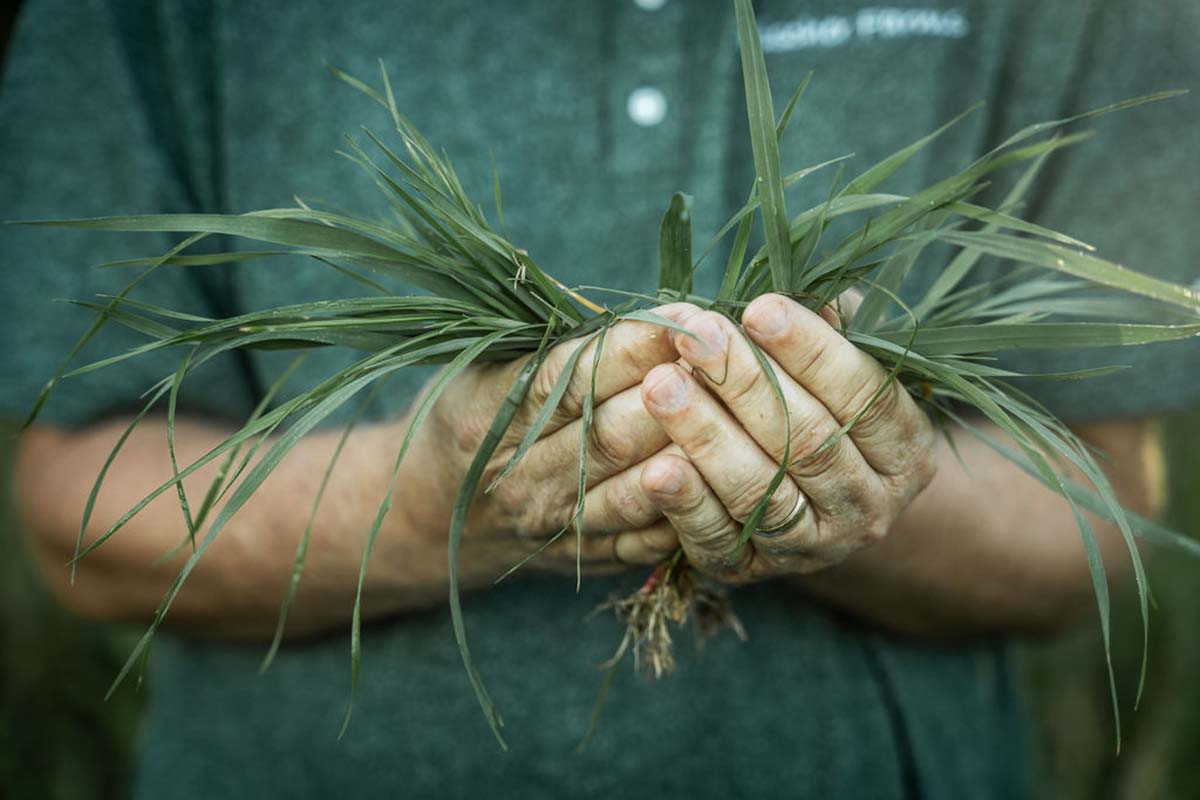
See sustainability in action on our farm!
Want more details? Check out an in-depth post about our regenerative farming practices!
Indiana Meat Delivery
Ready to order sustainable food for your kitchen? We deliver to homes across Indiana, and throughout most of the country — plus pickup points across Indiana and Chicago. Start shopping!
